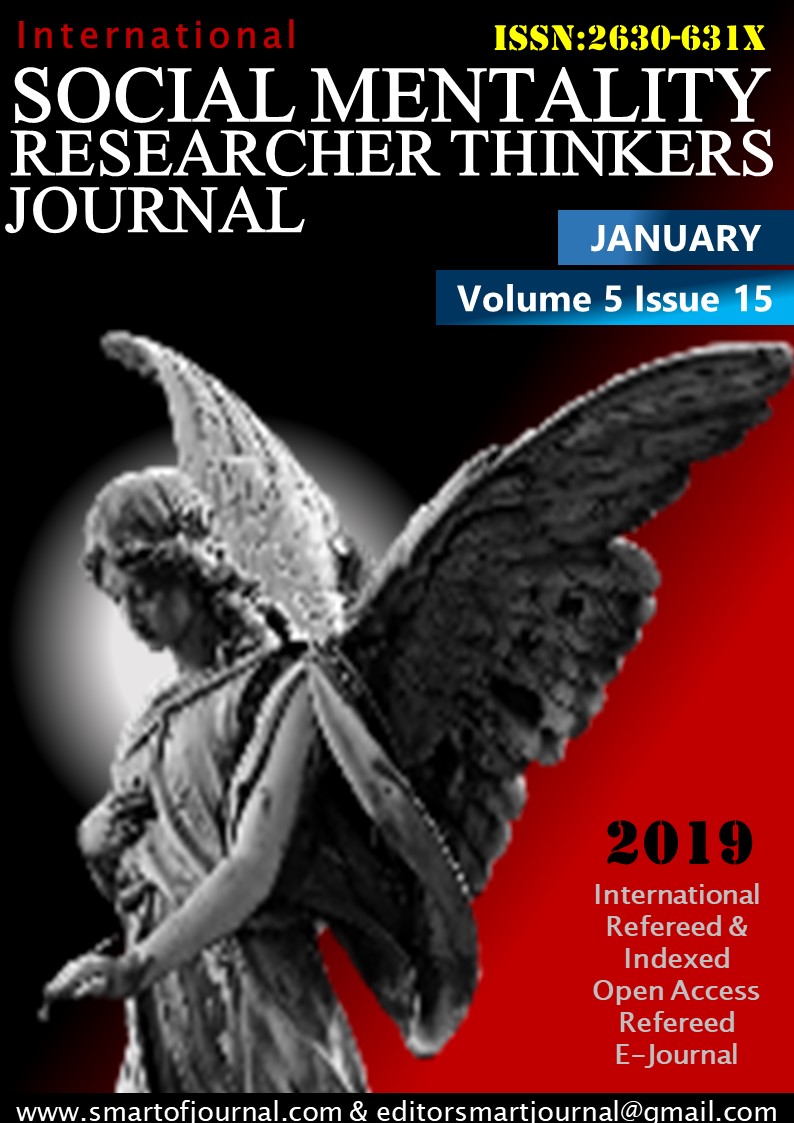Author :
Abstract
Okula aidiyet duygusu, bireyin okuldaki diğerlerine karşı ne hissettiği ile ilişkilidir. Öğrencinin, bireysel olarak okuldaki diğer bireyler tarafından ne ölçüde onaylandığına, saygı duyulduğuna, dâhil edildiğine ve desteklendiğine yönelik öznel duygu durumuna karşılık gelir. Öğrencilerin, kendilerini okullarının bir parçası, okul topluluğunun değerli bir üyesi olarak görmeleri konusundaki öznel algılarını ifade eden okula aidiyet duygusu da öğrencilerin, eğitim çıktılarını üst düzeyde kazanabilmeleri bakımından önemli görülmüş ve bu konuda çeşitli araştırmalar yapılmıştır. Örneğin Sarı’nın yaptığı araştırmada; akademik başarı düzeyi yüksek olan öğrencilerin, okula aidiyet duygularının da daha yüksek olduğu belirlenmiştir. Araştırmada temel konu olan okula aidiyet duygusu öğrencinin okulda mutlu bir birey olarak yer alması, okul içi ve dışı zamanlarında okulun bir parçası olarak hissedebilmesi, okulundan gururla bahsedebilmesi öğrenci üzerinde, dolaylı olarak da okuldaki diğer bireyler ve eğitimin diğer çıktıları üzerine pozitif yansımalar yaratacaktır. Bu çalışmanın amacı spor lisesi öğrencilerinde okula aidiyet duygusu algılarının incelenmesidir. Araştırmaya 2016 – 2017 Öğretim Yılında Şanlıurfa ili spor lisesi dokuzuncu, onuncu ve onbirinci sınıflarına devam eden 193 öğrenci katılmıştır. Verilerin toplanmasında Okula Aidiyet Duygusu Ölçeği (OADÖ) kullanılarak toplanan verilerin analizinde tek yönlü varyans (ANOVA) kullanılmıştır. Analizler sonucunda; okula aidiyet duygusu puanlarının genel olarak orta düzeyde olumlu olduğu; puanlar arasındaki anlamlı farkların Spor lisesi öğrencilerinde aitlik boyutunda aktif spor yapanlarda lehine olduğu belirlenmiştir. sınıf düzeyi reddedilmişlik boyutunda ise birinci ve sınıflar ile üçüncü sınıflar arasında fark bulunmuştur. Puanlarda, pansiyon durumu, , cinsiyete göre fark bulunmamıştır.
Keywords
Abstract
The sense of belonging to the school is related to what the individual feels about the others in the school. It corresponds to the subjective state of emotion that the student is individually approved, respected, included and supported by other individuals in the school. Students 'sense of belonging to the school, which expresses their subjective perceptions about seeing them as part of their school, as a valued member of the school community, has also been deemed important in terms of gaining students' educational outcomes at a high level and various studies have been carried out on this subject. For example, in his research; It was determined that the students who have high academic achievement level have higher attitudes towards school. The sense of belonging to the school, which is the main subject of the study, as a happy individual in the school, to feel as a part of the school in the school and outside of the school, to be able to speak proudly of his school, will indirectly create positive reflections on the other individuals in the school and on the other outputs of the education. The aim of this study is to examine the perception of belonging to school in sports high school students. In the 2016 - 2017 Academic Year, 193 students who attended the ninth, tenth and eleventh grades of the Şanlıurfa Sports High School participated in the study. One-way variance (ANOVA) was used to analyze the data collected using the School Sensitivity Sense Scale (OADS). As a result of the analysis; the sense of belonging to school was generally moderate in favor; Significant differences between the scores were found to be in favor of those who have active sports in the sports class. In the class-level rejection dimension, there was a difference between the first and third-grade classes. There was no difference according to scores, board status, and gender.
Keywords
- Aküzüm C, Oral B. Yönetici ve öğretmen görüşleri açısından okullarda görülen en yaygın şiddet olayları, nedenleri ve çözüm önerileri. Ekev Akademi Dergisi, 2015; 19 (61):1-29.
- Anderman, E. M. School effects on psychological outcomes during adolescence. Journal of Educational Psychology,2002; 94: 795–809.
- Alptekin D. Toplumsal Aidiyet Ve Gençlik: Üniversite Gençliğinin Aidiyeti Üzerine Sosyolojik BirAraştırma. Doktora Tezi, Selçuk Üniversitesi Sosyal Bilimler Enstitüsü Sosyoloji Anabilim Dalı, Konya, 2011.
- Booker, K. C. (School belonging and the Afri¬can American adolescent: What do we know and where should we go? The High School Journal,2006; 89 (4): 1-7
- Cemalciler Z. Schools as socialisation contexts: Understanding the impact of school climate factors on students’ sense of school belonging. Applied Psychology, 2010; 59, 243.
- Çağlayan H. S, Taşğın Ö, Yıldız Ö. Spor yapan lise öğrencilerinin problem çözme becerilerinin çeşitlideğişkenler açısından incelenmesi Niğde Üniversitesi Beden Eğitimi Ve Spor Bilimleri Dergisi, 2008; 2:(1), 62-77.
- Goodenow C. The psychological sense of school membership among adolescents: Scale development and educational correlates. Psychology in the Schools, 1993a; 30: 79-90.
- Goodenow C. Strengthening the links between educational psychology and the study of social contexts. Educational Psychologist, 1992a; 27: 177-196.
- Goodenow C, Grady K. E. The relationship of school belonging and friends' values to academicmotivation among urban adolescents students. Journal of Experimental Education, 1993; 62 (1): 60-değişkenler bakımından incelenmesi (kırşehir ili örneği).Ahi Evran Üniversitesi. Kırşehir Eğitim Fakültesi Dergisi, 2011; 12( 1): 227-238.
- Sari M. "Adaptation of the Psychological Sense of School Membership Scale to Turkish", Global Journal of Human Social Science: G Linguistics & Education, 2015; 15: 59-64,.
- Sarı M. Lise öğrencilerinde okula aidiyet duygusu. Anadolu Üniversitesi Sosyal Bilimler Dergisi, 2013; 13(1): 147-160.
- Osterman F. K. Students’ need for belonging in the school community. Review of Educational Research, 2000; 70 (3): 323-367
